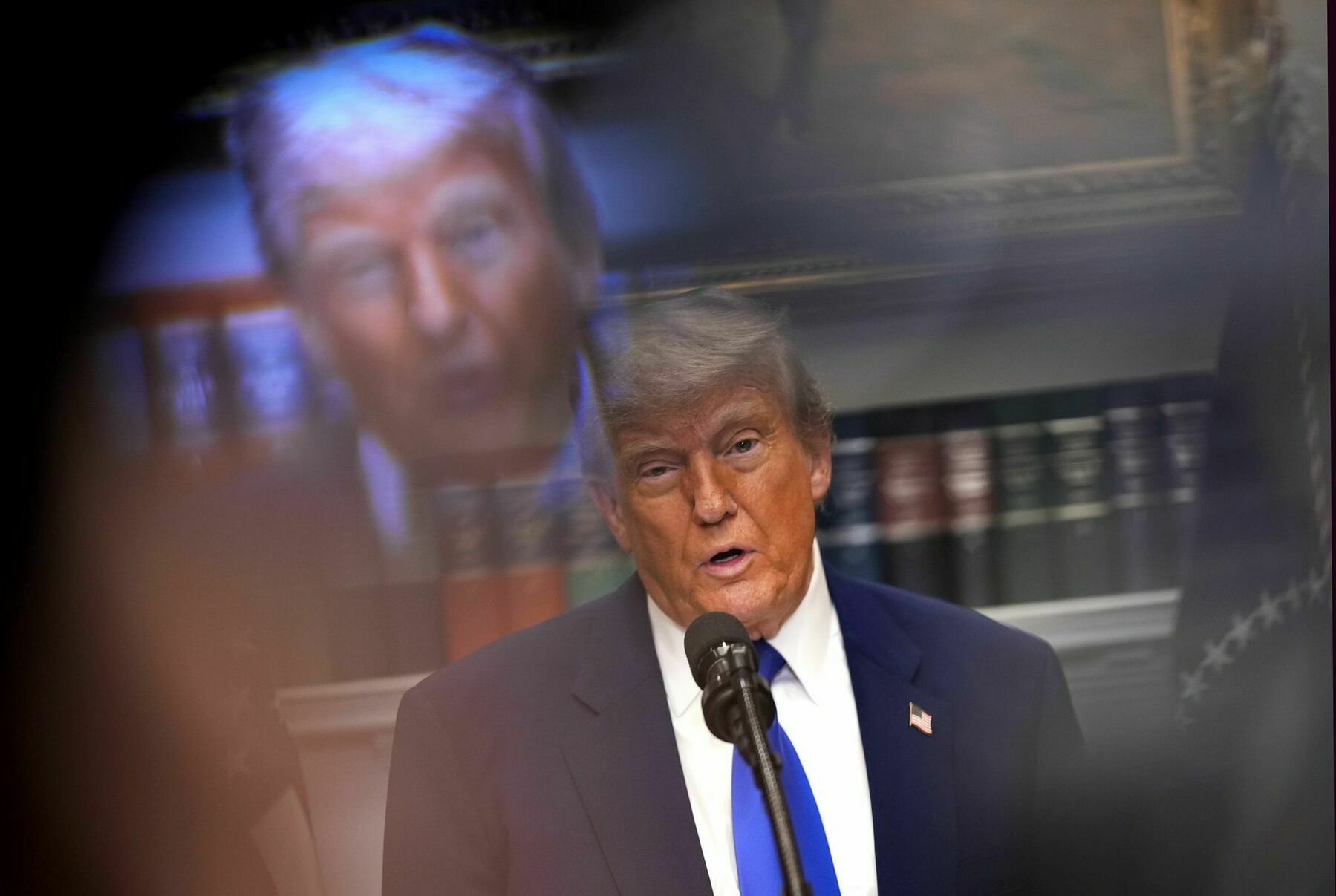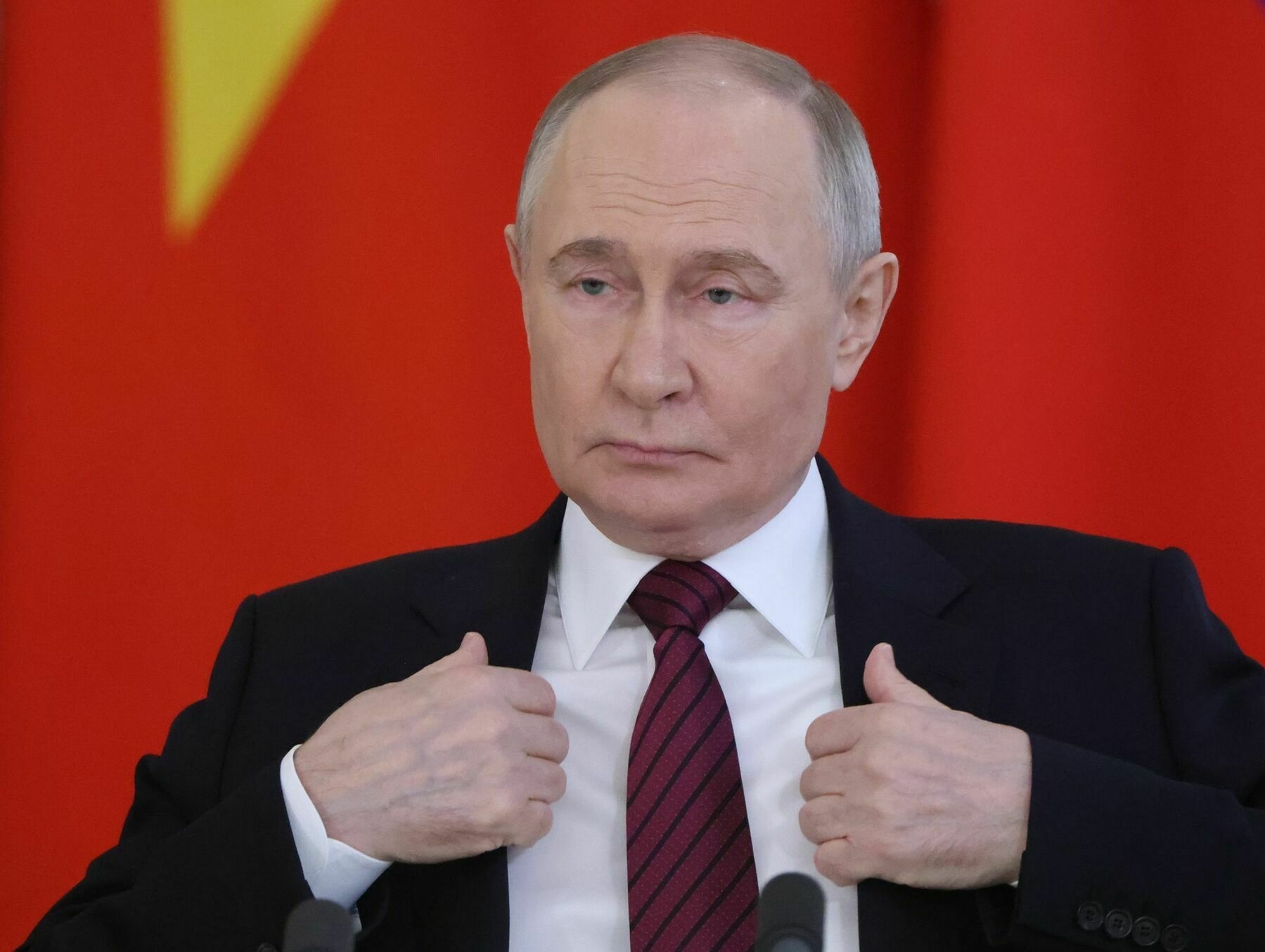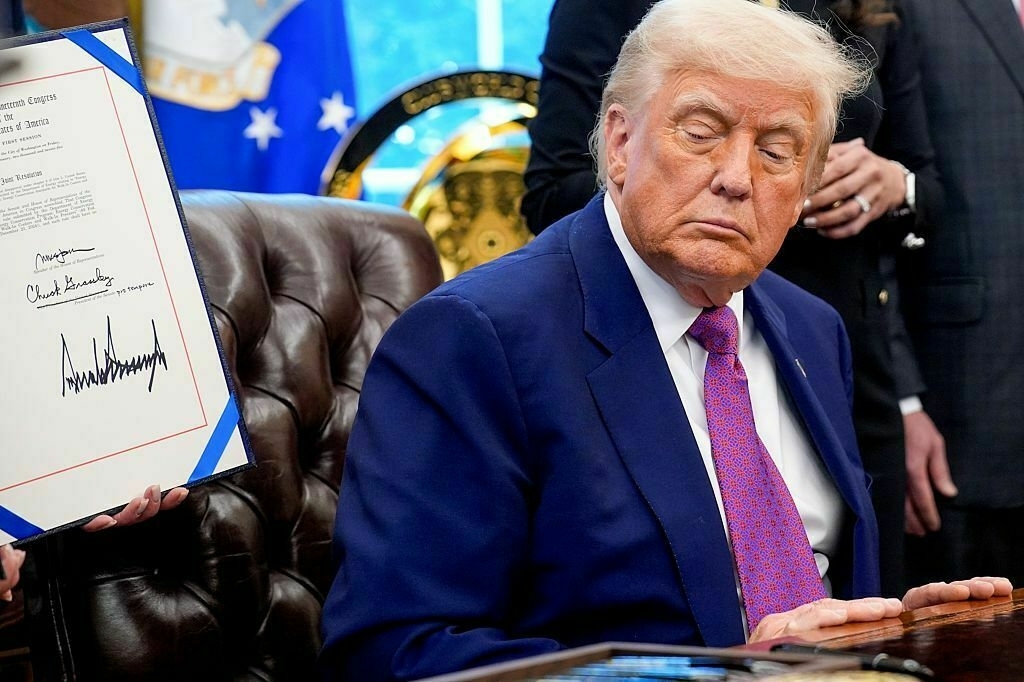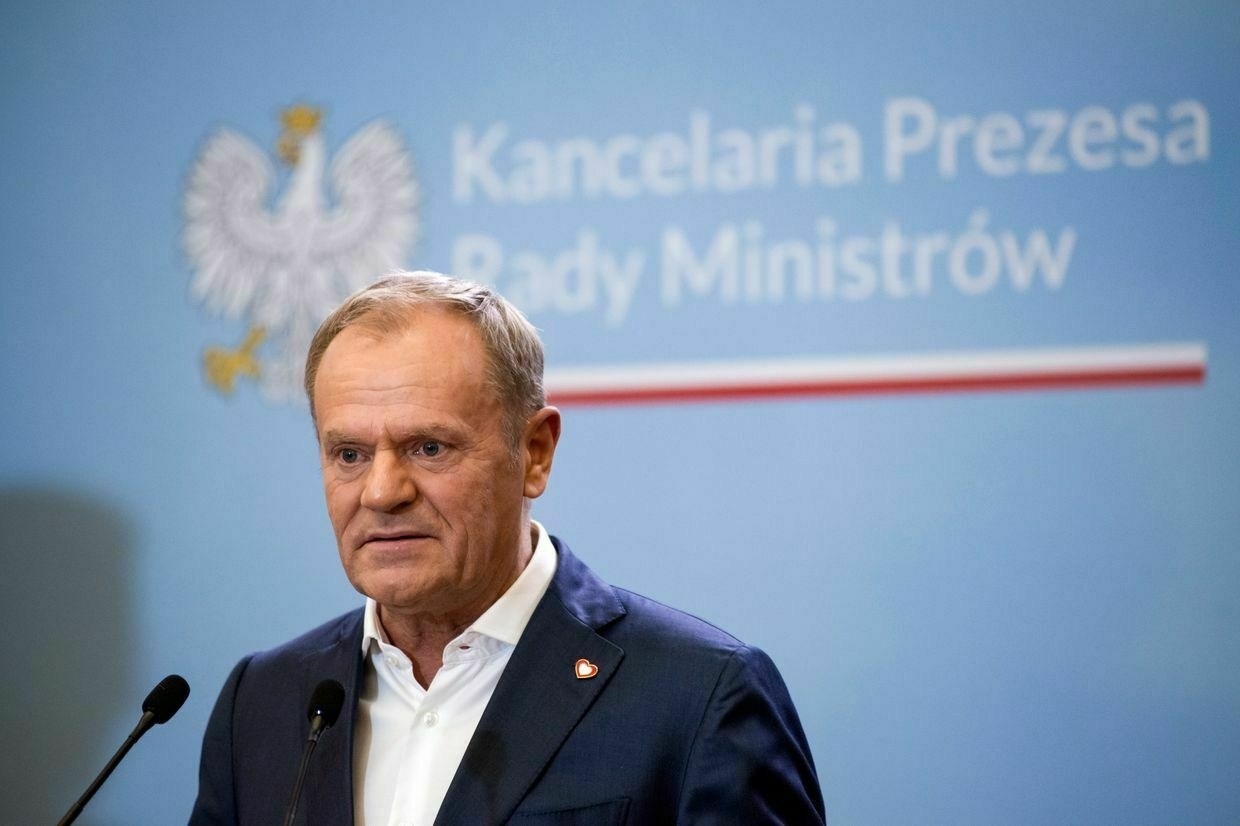
Key developments on May 12:
- Trump says ‘both leaders’ will be at Russia-Ukraine peace talks in Istanbul
- Russia ignores May 12 ceasefire proposal, Ukraine tells allies at London meeting
- ‘Clock is ticking’ — Germany gives Russia until midnight to implement ceasefire, threatens sanctions
- EU to unveil new sanctions against Russia on May 14, source says
- EU to send extra $1 billion from frozen Russian asset profits for Ukraine’s defense
U.S. President Donald Trump expressed optimism that President Volodymyr Zelensky and Russian President Vladimir Putin will attend peace talks in Istanbul on May 15, suggesting the meeting could yield “a good result."
“I think we may see a good result from Thursday’s meeting in Turkey between Russia and Ukraine,” Trump said during a press conference on May 12.
“I believe both leaders are going to be there. I even thought about flying over — I’m not sure where I’ll be on Thursday, I have so many meetings."
The statement comes as Putin has rejected an immediate ceasefire and instead suggested that direct peace talks be held in Istanbul beginning May 15. Zelensky said he is ready to meet Putin in Turkey in person. The Kremlin has not formally responded to his statement.
Trump claimed that he strongly advocated for the Istanbul meeting, calling it a critical opportunity to stop the war.
“Thursday’s meeting between Russia and Ukraine is very important. I strongly pushed for it to happen. I think good things can come from it,” the U.S. president said.
Reacting to Trump’s comment, Zelensky said he welcomed the possibility of Trump attending the meeting in Turkey, calling it “the right idea."
“I supported President Trump with the idea of direct talks with Putin. I have openly expressed my readiness to meet. I will be in Turkey. I hope that the Russians will not evade the meeting,” Zelensky wrote on X.
“And of course, all of us in Ukraine would appreciate it if President Trump could be there with us at this meeting in Turkey. President (Recep Tayyip) Erdogan can indeed host highest-level meetings."
The last face-to-face meeting between Putin and Zelensky took place in 2019 in Paris during a Normandy Format summit. Since then, there have been no direct in-person meetings between the two leaders.
 The Kyiv IndependentChris York,
The Kyiv IndependentChris York,
Russia ignores May 12 ceasefire proposal, Ukraine tells allies at London meeting
Ukrainian Foreign Minister Andrii Sybiha called in to a ministerial meeting held in London on May 12, joining his counterparts from the U.K., France, Germany, Italy, Spain, Poland, and the European Union via video link, the Foreign Ministry said.
Speaking after the meeting, Sybiha thanked U.K. Foreign Secretary David Lammy for convening the allies in what he called an “effective and regular format” and said discussions focused on coordinating peace efforts and joint work with the United States.
“This week will be decisive for peace and accountability,” Sybiha said. He also shared front-line intelligence from Ukrainian Commander-in-Chief Oleksandr Syrskyi, confirming that Russian forces have not honored the proposed ceasefire from May 12 and continue attacking Ukrainian positions across the front.
Sybiha said Ukraine and its allies discussed tougher sanctions against Russia’s banking sector, central bank, and energy industry, potentially to be introduced alongside new defense aid packages. “Putin must understand the cost of rejecting peace and choosing war,” he said.
According to Poland’s Foreign Ministry spokesperson Pawel Wronski, ministers from the “Weimar Plus” group, France, Germany, Poland, and the U.K., will also hold a joint phone call on May 12 with their counterparts from the U.S. and Turkey. They plan to discuss organizing potential peace talks between Ukraine and Russia in Istanbul, according to Ukrinform.
 The Kyiv IndependentAsami Terajima
The Kyiv IndependentAsami Terajima
‘Clock is ticking’ — Germany gives Russia until midnight to implement ceasefire, threatens sanctions
Germany gave Russia until the end of May 12 to agree to a ceasefire in Ukraine, warning that failure to do so would trigger preparations for new sanctions, government spokesperson Stefan Kornelius said during a briefing, Tagesschau reported on May 12.
“The clock is ticking — we still have 12 hours until the end of this day,” Kornelius reportedly said, adding that Berlin is coordinating with European partners on additional sanctions.
The ultimatum follows Russia's refusal of a 30-day unconditional ceasefire starting May 12, proposed by Ukraine and its allies last week when European leaders visited Kyiv.
The demand for the unconditional 30-day ceasefire was the main outcome of talks between Ukraine, France, the U.K., Germany, and Poland, according to President Volodymyr Zelensky.
Kremlin spokesperson Dmitry Peskov reacted to the remarks, saying that “ultimatum language” in talks with Russia is “unacceptable."
“This kind of ultimatum language is unacceptable for Russia. It’s not appropriate. You cannot talk to Russia in this language,” Peskov told a pool of Russian journalists on May 12.
Over the past 24 hours, Russian attacks injured at least 22 people in Ukraine. This includes at least seven people injured in drone attacks overnight on May 12, a date from which the 30-day unconditional truce should have started.
Chinese Foreign Ministry spokesperson Lin Jian on May 12 said that Beijing endorses all efforts aimed at establishing lasting peace in Ukraine, in response to inquiries regarding Kyiv and Europe’s suggestion for a 30-day ceasefire.
EU to unveil new sanctions against Russia on May 14, source says
The EU plans to unveil on May 14 its next package of sanctions imposed against Russia over its aggression against Ukraine, an EU official told the Kyiv Independent on condition of anonymity.
The European bloc has previously announced 16 separate sanctions packages since Moscow launched its full-scale invasion in 2022. The measures have targeted individuals, companies, and state institutions involved in supporting Russia's war machine in Ukraine.
Details of the 17th package remain unclear, though earlier reporting suggested it could include measures aimed at Russia's military-industrial complex, Moscow's shadow shipping fleet, and related support networks.
Russia has been using the shadow fleet to avoid Western sanctions and ship out its oil above the G7-imposed price cap. European countries have also linked the fleet to espionage and sabotage operations.
Talks on the 17th package began shortly after the EU adopted the 16th package on Feb. 24. The last package also targeted Russia's shadow fleet of tankers, financial institutions, entities involved in the Russian military-industrial complex, and more.
The U.K. hit the shadow fleet with its largest sanctions package yet on May 9, targeting 101 vessels.
"What we do on our side is to continue our pressure on Russia, be it with sanctions, be it with our support, be it on military humanitarian throughout all the strengths," European Commission Foreign Affairs Spokesperson Anita Hipper told the Kyiv Independent.
The EU has often faced opposition from some member states, namely Hungary, in implementing certain sanctions, at times forcing the bloc to water down the packages.
Paula Pinho, the chief commission spokesperson, commented that "whenever and when the proposal in the initiative starts with the (European) Commission in terms of sanctions, obviously there are discussions with all the member states to make sure that this can really go through."
"And so such talks take place constantly in terms of... making sure that there is wide support for whenever new sanctions are being proposed," she added in comments for the Kyiv Independent.
 The Kyiv IndependentDmytro Basmat
The Kyiv IndependentDmytro Basmat
EU to send extra $1 billion from frozen Russian asset profits for Ukraine's defense
The EU will allocate 900 million euros ($1 billion) from profits generated by frozen Russian assets to fund weapons and ammunition for Ukraine, EU Deputy Secretary General for Peace, Security and Defense Charles Fries said on May 12.
The new tranche brings total recent EU defense support for Ukraine to 3.3 billion euros ($3.6 billion), marking a significant expansion of European efforts to boost Kyiv's defense industry.
Speaking at the second EU-Ukraine Defense Industries Forum, Fries said contracts signed last week in Lviv will channel the funds into modern sectors of Ukraine's defense industry, including drone and missile production.
On May 9, EU Foreign Affairs Chief Kaja Kallas and foreign ministers signed a landmark agreement in Lviv to transfer 1 billion euros ($1.1 billion) in profits from frozen Russian assets to Ukraine.
That agreement focuses on joint production and procurement of military equipment.
Since Russia launched its full-scale invasion in 2022, Western countries have frozen approximately $300 billion in Russian sovereign assets.
In October 2024, the Group of Seven (G7) approved nearly $50 billion in loans for Ukraine to be repaid from the proceeds of those frozen funds.
Kyiv has consistently urged allies, particularly the U.S. Treasury, to formalize mechanisms for using frozen Russian assets to finance defense and reconstruction.
Western governments have primarily relied on reallocating interest income generated by the frozen funds to support Kyiv.
The Kremlin has warned of retaliation if Russian assets are confiscated outright for Ukraine's benefit. In early 2024, Moscow amended its legislation to allow counter-seizure of Western-owned property in response to asset seizures abroad.
Note from the author:
Ukraine War Latest is put together by the Kyiv Independent news desk team, who keep you informed 24 hours a day, seven days a week. If you value our work and want to ensure we have the resources to continue, join the Kyiv Independent community.

